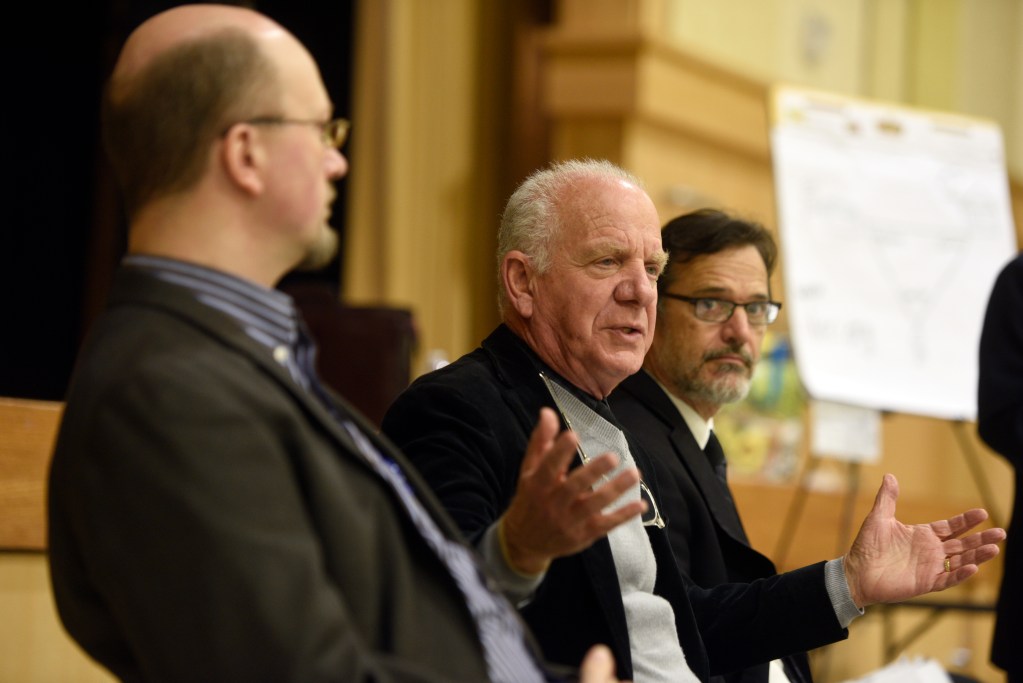Growing fear within the undocumented immigrant community has bred opportunity for fraudulent immigration services as more people seeking protection from deportation flock toward immigration consultants posing as lawyers. According to Arnold Jaffe, a Santa Barbara attorney who specializes in immigration law, more than half of his clients report that they had been “ripped off” by immigration consultants misrepresenting themselves as attorneys.
The California Immigration Consultant Program began in the 1960s to provide monolingual immigrants with nonlegal services like filling out immigration forms and submitting them to the correct United States Citizenship and Immigration Services entities. The consultants are not authorized to give legal advice or choose which forms the applicant fills out. However, many of these consultants illegally call themselves notarios — a term that in many Hispanic countries translates to a highly trained legal professional. They trick immigrants into believing the consultants are full-fledged attorneys and accepting fraudulent services that put them at risk of deportation.
In the past six months, complaints about the unauthorized practice of law (UPL) relating to immigration has doubled in the state, according to Teresa Ruano with the California State Bar. In December 2018, for example, there were 59 reports of UPL. In April, the number jumped to 106. Ruano said it’s impossible to determine the exact reasons for the boost, but it may be in part due to the recent efforts by the State Bar to make complaint forms more widely accessible online to victims of fraud and posting warnings to immigrants on its website and social media in both English and Spanish.
Jaffe said a common “scam” immigration consultants perform is promising the client they can get them a work permit through an asylum application. The consultants fail to tell the applicants that they don’t actually qualify for asylum. When they submit their application, they get denied and sent to immigration court, where they ultimately end up in removal proceedings — or deportation. “Everybody is afraid now with the [ICE] raids,” Jaffe said, “so they cling on to the false guarantees from notarios.”
The widespread abuse by consultants has led to Assembly Bill 1753, which, if passed, would terminate the California Immigration Consultant Program entirely and become law at the beginning of 2020. It’s backed by the State Attorney General and dozens of other organizations, including IMPORTA Santa Barbara, a nonprofit with accredited representatives who can represent clients in their petitions and applications to the U.S. Citizenship and Immigration Services.
Russell Trenholme, volunteer coordinator at IMPORTA Santa Barbara, said he sees clients multiple times a week who were victims of legal fraud. He said that although immigration consultants are the main group committing the fraud, licensed attorneys do it, too. Attorneys licensed with the State Bar can practice immigration law, he said, even if they have never had any training in it.
“The [immigration system] is a complex web of grandfathered exceptions and discretionary decisions,” Trenholme said. “Immigration law is even more complex than tax law.” He said the most common malpractice by licensed attorneys is charging unreasonably high fees for routine work like translations, green card renewals, or DACA renewals.
“I’ve had clients come to me and say they were instructed to lie [on immigration applications] by a notario,” said Marisol Alarcon, an immigration attorney in Carpinteria. She said many of the common immigration forms are much longer and more detailed than years ago, which creates a strong potential for perjury if the immigrant isn’t guided by a well-trained immigration attorney. She said sometimes it’s better for a client not to fill out an application if the answer to a question could be used against them in immigration court. “I never make promises to them, because it’s out of my control,” Alarcon said. “My biggest advice to a client is to be wary of anyone who makes you a guarantee.”
Alarcon said a common way immigrants wind up in removal proceedings is when a consultant doesn’t thoroughly screen them and then has them lie either intentionally or unintentionally on immigration forms. For example, many common immigration forms ask if the applicant has registered to vote. With some states recently allowing DMV records to merge with immigration databases, an applicant who might have unintentionally marked “yes” to register to vote on past DMV paperwork and then marked “no” on an immigration application could be found guilty of perjury and get deported over it.
To avoid being a victim of malpractice, the California State Bar recommends obtaining a written contract with a hired consultant, never signing blank forms, and making copies of every document shared with the consultant. Other tips can be found at tinyurl.com/sboc-tips.
This article originally misstated the reason Ernesto Rodriguez was served a cease-and-desist letter on April 25 by the State Bar. Because Rodriguez is not an attorney certified by the State of California, a cease-and-desist letter was issued to him because he had drafted a legal document on a personal matter. We regret the error.

